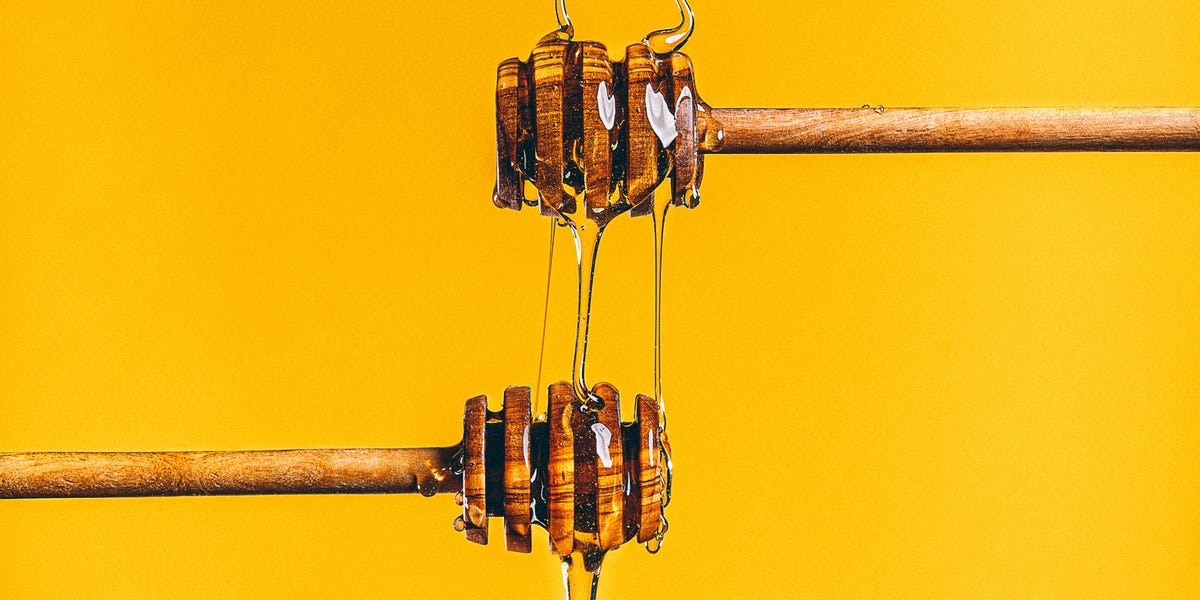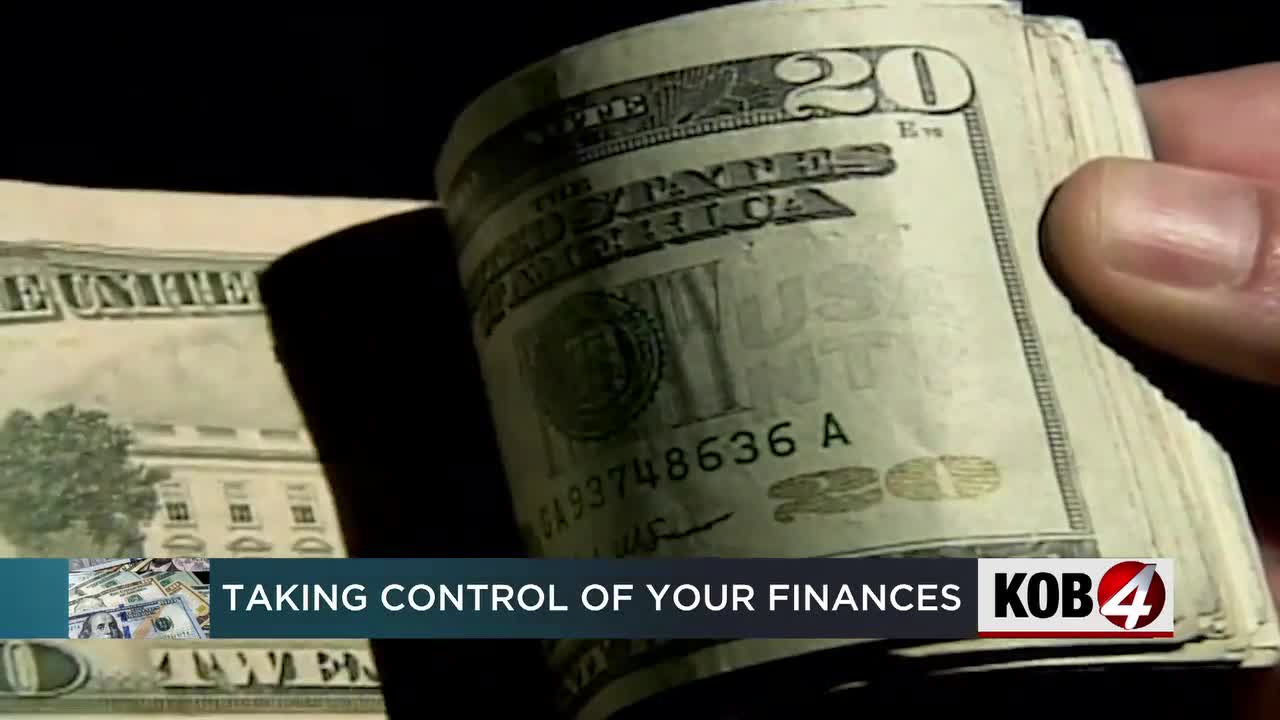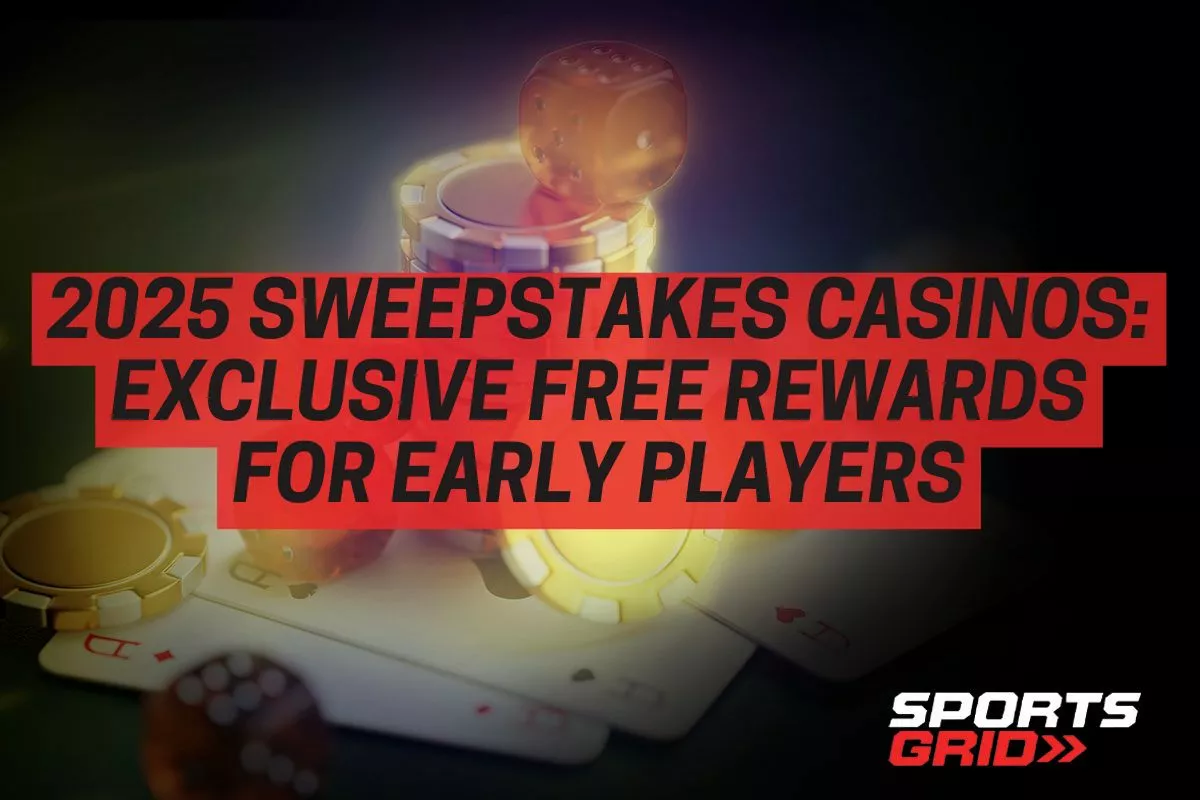
120% growth! Bitcoin outperformed most asset classes last year — will the momentum sustain for cryptos in 2025? | Stock Market News Mint
source

Influencers are suing the financial giant PayPal in two class-action lawsuits filed this week. The content creators separately alleged that the company’s Honey browser extension, which searches for coupons around the web, took affiliate commissions away from them by improperly claiming credit for driving sales.
A spokesperson for Honey said the company disputed the allegations in the lawsuits and would defend against them vigorously.
The lawsuits ask the US District Court in Northern California to consider what’s fair play in the cutthroat world of affiliate marketing, a major business that Adobe Analytics said drove about 20% of US e-commerce revenue on Cyber Monday.
Affiliate marketing is a practice in which YouTubers and other content creators earn a commission if they inspire a purchase. Honey similarly earns money through affiliate commissions, getting paid if a user clicks on its browser extension to search for a coupon or deal before buying.
The referrer who actually gets paid the commission — and it’s generally only one — is determined by a mix of links, browser cookies, and other tags that indicate the final source of referral, a practice known as last-click attribution. In short, the last click wins.
“Honey follows industry rules and practices, including last-click attribution, which is widely used across major brands,” the Honey spokesperson said.
In the lawsuits, the plaintiffs allege that Honey would take credit for driving online sales it didn’t actually help with. The suits say that even if Honey couldn’t find a coupon, it would get the last click, sometimes taking it away from a content creator who had linked to a product.
“In its simplest form, Honey is not providing benefits that they say they’re providing, and they are basically saying to online retailers that they were responsible for a referral for a sale when they are not,” Devin Stone, a counsel for one of the plaintiffs who also runs the YouTube channel LegalEagle, told Business Insider.
The Honey spokesperson said the extension helped “millions of shoppers with additional savings on their purchases whenever possible” while helping merchants “reduce cart abandonment and comparison shopping.”
The plaintiffs are seeking damages as well as injunctive relief, a measure that would require Honey to change its affiliate practices. If the lawsuits are certified as class action, other creators who believe their affiliate businesses were harmed by Honey could also sign on to the suits.
But Robert Freund, an advertising and e-commerce lawyer, said it may be tough for creators to prove that Honey is doing anything unlawful by taking credit for driving sales. PayPal could argue that Honey is driving final sales even in instances when it fails to offer a discount coupon. And because it’s a browser extension, it’s often going to be the last click a user makes before purchasing.
“The difficulty there for the plaintiffs is you’re essentially trying to make the system of last-click attribution for affiliates unlawful,” Freund told BI. “I can understand why a creator affiliate would think that it’s unfair, but I don’t know that it’s illegal.”
He added, “I don’t think it’s a frivolous case by any means, but there’s certainly some challenges ahead for the plaintiffs.”
Even if Honey prevails in getting the lawsuits dismissed, it may have to adjust its practices to make peace with the creator community. The company works with a lot of influencers to advertise its product and could lose a large chunk of that marketing channel if creators believe it’s damaging their affiliate businesses.
Honey has been under scrutiny in the creator community since December 21, when the YouTuber MegaLag posted a video criticizing the company’s affiliate-marketing practices.
Since then, other prominent creators like Marques Brownlee and Hank Green have spoken out against the extension.
Jump to

Login
Draw your swords!
Experience what it’s like to be a nobleman in the Medieval Era in the Kingdom Come Deliverance 2 Gold Edition.
Set in 15th-century Bohemia during a civil war, the game immerses players in a world shaped by revenge, betrayal, and survival.
You play as Henry of Skalitz, a blacksmith’s son drawn into a dangerous journey.
From humble beginnings, his story takes him from village forges to the courts of kings, navigating a harsh and turbulent medieval world filled with difficult choices and unforeseen consequences.
Here’s a breakdown of what the Kingdom Come Deliverance 2 Gold Edition includes and how it enhances the experience for players.
Kingdom Come Deliverance II is the sequel to the acclaimed medieval role-playing game, continuing its focus on a richly detailed, historically grounded open world.
Players follow a story of revenge, betrayal, and self-discovery, starting as a humble blacksmith and navigating a path that leads to the courts of nobility.
The game offers an expansive journey through Medieval Europe, featuring lively cities, serene forests, and a mix of action and intrigue. It’s a tale of survival and growth set against the backdrop of a turbulent era.
Kingdom Come Deliverance 2 releases on February 4, 2025 on PlayStation 5, PC, and Xbox Series X|S.
Here are all the links where you can preorder the game:
Those who buy the Gold Edition get many rewards such as the Gallant Huntsman’s Kit, three upcoming expansion packs, and a Shields of Season Passing.
READ MORE: How to roll back Nvidia drivers in Windows 11
Sign up for a free ONE Esports account and start engaging with other fans!
You’ll also receive a monthly newsletter and other goodies!

The latest data shows a plunge in Chinese oil consumption owing to the increased availability of electric vehicles and natural gas.
For many years, the outlook for the world oil market has rested heavily on China, as it has been by far the most significant driver of demand growth in this century. But now, twenty years after the landmark 2004 surprise, when Chinese demand reached over 3 million barrels per day year-on-year, stoked fears of scarcity and drove up prices, there is a growing consensus that China’s oil demand will soon peak. That does not necessarily mean that global demand will peak shortly thereafter, as it reflects the specifics of the policy context in China. Still, it makes it a lot harder to envision a period of lasting market tightening in the future, which many oil bulls and OPEC+ producers had predicted would take place in the mid-to-late 2020s.
The two largest state-owned oil companies in China, CNPC and Sinopec, both issued studies in December that showed that the demand for transportation-sector goods has already peaked, with total demand set to peak soon. Both expect full-year data for 2024, when released, to show declines in gasoline and highway diesel usage, which has been accelerated by the faster-than-previously-expected gains in sales of electric vehicles (EVs) and the increasing use of natural gas as an alternative fuel for heavy trucks. The only oil-based transportation fuels that are still growing are jet fuel and kerosene. Sinopec forecasts diesel use to fall by 5.5 percent in 2025 from 2024 levels and gasoline use to fall by 2.4 percent. Fully 22 percent of new heavy trucks sold in the first three quarters of 2024 used natural gas as a fuel, and EVs are expected to displace 15 percent of gasoline consumption in 2025 relative to where it would have been otherwise.
The decline in oil use as a transportation fuel is being more than offset in the short-term by gains in demand for industrial consumption, which Sinopec shows increasing by 55 percent from 2023 to 2035. Still, total demand in their forecast tops out in 2027 and begins a gradual decline as the fall in transportation demand accelerates. CNPC has a slightly more bullish forecast but still shows the peak for total demand being reached in 2060.
Global oil demand forecasts from major agencies like the IEA and OPEC have diverged sharply in recent years, driven in large part by differing assumptions about how much government policies will shift in response to the desire to mitigate climate change. Both have been accused of being influenced by politics and wishful thinking, with the IEA’s baseline scenario envisioning rapid adoption of mitigation measures and OPEC foreseeing a world in which demand growth is adequate to keep most participants in OPEC+ financially comfortable.
The IEA baseline has global demand peaking by 2030, with the much less realistic “Announced Policies Scenario,” in which all countries meet their stated climate change mitigation goals, showing a peak in 2025. OPEC shows slow growth after 2035 but has no peak. In my opinion, the OPEC forecast is the less credible of the two. The IEA’s baseline is probably still too optimistic (from their perspective) about the impact of mitigation measures on demand. Still, the impact of Chinese policies on demand is now not open to disagreement.
We are still likely to see a wide range of demand outcomes, which will see demand continuing to grow elsewhere after China peaks. In the United States, the incoming Trump administration is set to undo much of what Biden put in place. This may include ending the $7,500 tax credit that subsidizes EV purchases and rolling back Biden’s automobile emissions standards, which would have effectively forced EVs to contribute to half of U.S. passenger vehicle sales by the mid-2030s.
As India takes China’s place as the largest source of demand growth, government policy remains aimed in a protectionist “make in India” direction with no major incentives to decarbonize transportation. New Delhi is, however, trying to lure Tesla into investing in the country, aiming for its high-end market segment with lower tariffs for expensive cars. One big question at the moment is how the rest of the world will treat lower-end Chinese EVs, given that they have been able to produce some models with prices as low as $12,000. If others do not raise protectionist barriers to Chinese EVs, they could start replacing the inexpensive Japanese and Korean gasoline cars and light trucks that have dominated most developing automotive markets—a move that could bring global peak demand closer.
It is still true that aviation and petrochemical demand for oil in the developing world has a lot of room for growth, which will probably take peak global demand out past 2030, if only for a few years. However, it is much more difficult to envision a future period of renewed concerns about the scarcity of oil without continued demand growth from China. Countries like Russia and Saudi Arabia, which had planned to be able to replenish their coffers with one last period of scarcity and high prices, are likely to be disappointed.
Greg Priddy is a Senior Fellow at the Center for the National Interest and does consulting work related to political risk for the energy sector and financial clients. Previously, he was director of global oil at Eurasia Group and worked at the U.S. Department of Energy.
Image: Humphery / Shutterstock.com.
© Copyright 2025 Center for the National Interest All Rights Reserved

Memory is one of the most crucial aspects of our health and human identity. Through memory, we create our individuality, our specific relationships with the world we inhabit, and we learn to stay safe and make healthy choices.
Historically, the ability to make, maintain, and update memories has been tied to the human brain.
Increasingly, however, researchers are wondering if there is a whole-body memory, that is, if different parts of our bodies can also make and store a type of memory, and if so, how these other memories may be affected by and, in turn, impact aspects of our health.
Recently emerging evidence seems to suggest that human memory may be an even more complex affair than we have so far imagined.
In November 2024, a team of researchers from the Center for Neural Science at New York University (NYU) published a paper in
Speaking to Medical News Today, lead author Nikolay Kukushkin, DPhil, clinical associate professor of life science at NYU, told us that his “lab has been interested in memory at its most basic level for many years.”
“In the past, we studied sea slugs because they form very simple memories, allowing us to get to the bottom of how they form. What we have done now is to find an even simpler memory, which is common not just across different animals, but across all cell types,” Kukushkin explains of his team’s new study.
“What we were hoping to find […] is that generic cells of the body do not just have ‘memory,’ they have memory. It’s fully literal. […] [O]ur study shows that it’s not just a metaphorical connection — it is the same mechanism that retains information in brain cells and in kidney cells (same cellular tools), and it follows the same rules — namely, the spacing effect, the fact that experiences separated in time produce a stronger memory than the same amount of experience crammed in one go.”
— Nikolay Kukushkin, DPhil
The “spacing effect” refers to a phenomenon whereby learning, or the creation of a memory, occurs more effectively when information, or exposure to a stimulus, is spaced out.
In their study, Kukushkin and his team tested the formation of memories in laboratory experiments on two types of human non-brain cells: cells collected from nerve tissue and cells collected from kidney tissue.
They exposed both of these types of cells to chemical signals in a spaced-out pattern mimicking the way in which brain cells learn through exposure to such chemical information via neurotransmitters, or chemical messengers.
The researchers found that, much like brain cells, these other types of cells responded to the chemical signals by switching on a gene associated with memory storage.
This suggests that, like brain cells, other cells in the human body also accumulate memories.
The question that then arises is: What kinds of memories might cells around the body store? That, Kukushkin told us, “is a critical point.”
“Every system memorizes what it experiences — a sea slug memorizes sea slug things, a human memorizes human things, a kidney cell memorizes kidney cell things,” he explained, also referencing previous research on memory formation conducted on Californian sea slugs.
“We are not saying, as some people seem to imagine, that ‘mind’ memories (emotions, knowledge, skills) are stored in kidneys,” the researcher clarified. “Those things are still processed in the brain, and in the brain they are stored. But other cells have their own experiences.”
According to Kukushkin, the memories stored in non-brain cells in other parts of the body are memories strictly related to the roles that those specific cells play in human health.
Thus, he detailed:
“A kidney cell might be exposed to different patterns of salts, fluids, nutrients; based on those patterns, it might change how it acts in the future. One known example of this kind of memory is what happens to pancreatic cells when they are exposed to a large amount of sugar. In response, they release into the bloodstream a pulse of insulin, a hormone that promotes sugar absorption. This pulse reaches a certain peak, and then fades away. But wait 20 minutes and repeat the sugar load — now the pulse of insulin becomes twice as big.”
— Nikolay Kukushkin, DPhil
“You can see why that would be useful,” said Kukushkin, “if your sugar-absorbing capacity has been maxed out, you should increase it to make sure you don’t waste any nutrients.”
“But if you had it permanently increased, you’d probably be fatigued and hungry all the time. So adding a memory element into the pancreatic cell helps it adapt to the patterns of nutrients, just as ‘mind’ memories help us adapt to the patterns of experience,” he hypothesized.
While Kukushkin said the recent study conducted by him and his collaborators “is a proof of principle,” other recent research more clearly shows how memories stored in other parts of the body than the brain could affect health outcomes in practice.
A study published in November 2024 in
The study, conducted by researchers from ETH Zurich, in Switzerland, supports the notion that lifestyle factors, such as unhealthy dietary patterns that can lead to chronic conditions like obesity, can trigger epigenetic memory formation by switching on genes that were not previously expressed.
Ferdinand von Meyenn, PhD, professor of nutrition and metabolic epigenetics at ETH Zurich, and one of the lead authors of this study, told MNT that “this project stemmed from [the team’s] curiosity about whether cells retain an epigenetic memory of prior metabolic states.”
“Epigenetic memory is well-known for explaining how daughter-cells maintain their transcriptional identity through cell division, playing a vital role in development, regeneration, and growth. But what about nondividing cells? They too must adapt to external stimuli and therefore undergo epigenetic adaptations,” he noted.
Through this study, von Meyenn and his colleagues wanted to figure out if a chronic condition like obesity would change the way in which adipose tissue reacts to external factors and, if so, if those changes were permanent or reversible.
“A well-documented observation is that the body tends to defend increased body weight, making weight loss and maintenance notoriously challenging,” von Meyenn pointed out, referring to phenomena like yo-yo dieting, which has, in turn, been linked to a heightened cardiovascular risk.
The researcher and his colleagues hypothesized that “this could be due to a type of ‘metabolic memory,’ where the body remembers and strives to return to its former state of obesity.”
To prove this hypothesis, the researchers, in the first instance, analyzed adipose tissue from overweight mice, as well as from mice that had shed the extra weight.
“We have found that adipocytes carry a ‘memory’ of obesity even after significant weight loss,” von Meyenn.
“In mouse adipocytes [fat cells] we find that this memory is encoded in the epigenome, which are modifications to the DNA or the proteins that the DNA is wrapped around, controlling the activity of genes. This epigenome is changed in adipocytes of obese mice and remains changed even after weight loss,” he went on to explain.
The second stage of the study involved confirming the findings in humans by analyzing samples of fat tissue from people who had undergone bariatric surgery as a form of treatment for obesity or overweight.
“This memory seems to prepare cells to respond quicker to an obesogenic environment [environment conducive to wight gain] — say, high-sugar, high-fat food — which could be linked to regain of body weight after a diet,” von Meyenn hypothesized.
“Our study indicates that one reason why maintaining body weight after initial weight loss is difficult is that the fat cells remember their prior obese state and likely aim to return to this state. This means that one would have to ‘fight’ this obesogenic memory to maintain body weight.”
— Ferdinand von Meyenn, PhD
“From an evolutionary perspective,” said von Meyenn, maintaining a memory that facilitates regaining, rather than shedding, weight “makes sense.”
“[H]umans and other animals have adapted to defend their body weight rather than lose it, as food scarcity was historically a common challenge,” the researcher explained. “On a societal level, this could offer some solace to individuals struggling with obesity, as it suggests that the difficulty in maintaining weight loss may not be due solely to a lack of willpower or motivation, but rather to a deeper cellular memory that actively resists change.”
One question remains, however: Can such body memories of obesity be “erased” to facilitate consistent weight loss?
This question does not, as yet, have a straightforward answer.
“Currently, there are no pharmacological interventions that are targeted against the epigenetic changes we have observed,” von Meyenn told us. “Tools are being developed that could target the epigenome, but these are very novel and have not been used in humans.”
He expressed cautious optimism that future research will bring the answers and solutions we seek:
“It is possible that maintaining a reduced or healthy body weight for long enough, is enough to erase the memory. Since metabolism is intricately involved in the regulation of the epigenome, it is also possible that certain nutritional or food supplements could help mitigate this effect. Additionally, future studies are needed to investigate whether incretin mimetics such as semaglutide can erase or modify this memory.”
— Ferdinand von Meyenn, PhD
Share this article
OUR BRANDS

03/01/2025
31/12/2024
28/12/2024
28/12/2024
23/12/2024
21/12/2024
19/12/2024
29/01/2019
03/01/2019
28/12/2018
15/11/2018
10/11/2018
27/10/2018
22/10/2018
04/01/2025
04/01/2025
04/01/2025
04/01/2025
04/01/2025
04/01/2025
03/01/2025
While Shiba Inu has managed to hold onto its position as the second-largest meme coin in the crypto space, a trio of up-and-coming altcoins looks set to outperform it for the remainder of this cycle. Rollblock, HyperLiquid, and Hedera are being tipped for astonishing gains in the coming months and could pump up to 50x as they reach mainstream adoption this year.
Rollblock ($RBLK) continues to dominate the GambleFi pre-sale world as it recently stormed through the $8 million threshold for total value locked. December has been an incredible month for this up-and-coming Web3 casino, which delivers the promise of unrivaled trust and transparency to the $450 billion online gaming industry. Rollblock achieves this through its leverage of the immutable Ethereum blockchain to inscribe all bets securely and so eliminate any risk of bet tampering.
In the last month alone, Rollblock recorded a 600% surge in deposits and sign-ups and an incredible $1.75 million of wagered bets on the platform.
The $RBLK offer is an enticing one – its hard cap of 1 billion tokens and a deflationary revenue-sharing scheme will see the supply of this token fall rapidly as Rollblock scales this year. The platform’s profits are regularly used to buy back $RBLK, with 60% of these tokens burned while the remaining 40% find their way back to grassroots community members through staking rewards.
This deflationary issuance is just one of the reasons that analysts are so bullish on this gaming token and predict huge moves of up to 50x from the current low price of $0.0445.
HyperLiquid has had an incredible run recently, rising by more than 130% in the past month to hit $23.
HyperLiquid is a brand-new layer-1 blockchain that uses HyperBFT technology to ensure rapid and transparent transactions. HyperLiquid aims to bridge the gap between centralized and decentralized exchanges. HyperLiquid developers have claimed that the protocol can handle over 100,000 TPS – faster even than the rapid performance of Solana. With major exchange listings for HyperLiquid scheduled for Q1, its price could easily hit $100 and run rings around Shiba Inu at this time.
Hedera has pumped by over 6.3% today to reach $0.31. Hedera recently announced that it will be working with the Oracle giant Chainlink to provide data feeds and proof of reserves on the Hedera network.
This will see huge improvements across the chain’s institutional DeFi and RWA apps on Hedera. This collaboration looks extremely bullish for Hedera and could well see the price of Hedera reclaim its yearly high of $0.39 in the weeks to come.
While meme coins such as Shiba Inu will always have a place in crypto, the likes of HyperLiquid, Hedera, and Rollblock ($RBLK) offer genuine innovation and utility and will be priced accordingly. Rollblock in particular represents a stunning opportunity to make an early allocation to a future giant of the GambleFi space – investors should hurry and scoop up stage nine coins before the next price hike.
Discover the Exciting Opportunities of the Rollblock (RBLK) Presale Today!
Website: https://presale.rollblock.io/
Socials: https://linktr.ee/rollblockcasino
Copyright @ TheCryptoUpdates

By Zarmena Khan
Kingdom Come: Deliverance 2 developer Warhorse Studios has some good news for fans of the action role-playing game. Those looking forward to the upcoming PS5 title will be pleased to note that the game will be in the hands of reviewers an entire month ahead of launch on February 4, 2025.
Warhorse Studios’ PR manager, who goes as SirTobi28 on X, revealed that not only will reviewers be playing the game for a while before they publish their final opinions, they’ll be allowed to share their impressions while playing as well.
“From now on, everything will be in the lap of the Review-Gods (pls be kind),” the tweet reads. “Not gonna lie… I am nervous but also excited AF. 6 years of work are leaving the nest.”
We are sending out #KCD2 review codes in the next few days (yes…. 4 weeks ahead of release ???)!!!
From now on, everything will be in the lap of the Review-Gods (pls be kind). Not gonna lie… I am nervous but also excited AF. 6years of work are leaving the nest.
If you… pic.twitter.com/4hQdrU02GW
Fans have said that this is a sign of Warhorse’s confidence in their work. Some also think that early review codes will allow the studio to iron out kinks ahead of launch, should Kingdom Come: Deliverance 2 reviewers come across any game-breaking bugs or other glitches.
Despite receiving mixed reviews, the original 2018 entry went on to become a commercial success and garnered quite a following.
Are our readers looking forward to Kingdom Come: Deliverance 2?
Zarmena is a senior editor at PSLS. She has been with the site since 2014.
Share article

ALBUQUERQUE, N.M. – The holidays can leave you feeling less than jolly while looking at your bank account, but there are ways to take control of your finances in 2025.
“All the studies show that financial stress when you’re out of control has profound effects on physical health and also on relationships. It’s bad news,” said Charlie Bergman, who teaches financial literacy at St. John’s College in Santa Fe.
He says the first step to getting your finances in order is to make a budget. That starts with looking at where you spent your money at the end of the month, then go from there. There are several budgeting systems, but Bergman likes the envelope system.
“You literally label a small number of envelopes, no more than ten, things like grocery, rent, medication, discretionary, and you stuff a certain amount of actual cash into those at the start of the month,” he said. “Once the envelope is empty, that’s it. No more money.”
Don’t forget cash for debt payments, that’s your main priority, according to Bergman.
“If it’s a credit card debt problem, which is the most typical one, you want to make sure you pay off at least the monthly minimum amount,” Bergman said. “If you do that, you’re saved from horrendous interest rate charges.”
He says the gold standard though, is never use your credit card unless you know you can pay off the full amount every month.
Next, work to build up your emergency cash fund. That means save enough money to cover your costs for six to 18 months.
“If things go sideways on you, you lose jobs or there’s a market downturn, there’s an emergency, there’s medical, you don’t want to have to sell off your investments,” he said.
Once you accomplish those three goals, Bergman says it’s time to invest.
“Your investment consists of three exchange traded mutual funds. That’s it. The industry wants you to think you need 12, 20, 25 of them. You don’t,” Bergman said.
For more investment tips, Bergman recommends the book, “How a Second Grader Beats Wall Street: Golden Rules Any Investor Can Learn” by Allan Roth.
For more financial tips, you can watch our full interview with Bergman here.
Any person with disabilities who needs help accessing the content of the FCC Public File may contact KOB via our online form
or call 505-243-4411.
This website is not intended for users located within the European Economic Area.
© KOB-TV, LLC
A Hubbard Broadcasting Company


The Early Line
WATCH
LISTEN
NFL
CFB
NBA
WNBA
MLB
NHL
All Sports
Picks
Casino
More
Playing at sweepstakes casinos in 2025 promises a wonderland of free goodies and rewards. Whether it’s new sweepstakes casinos or household names, most sites offer exclusive free rewards for early players in 2025.
In this guide, I explore the best sweepstakes casinos of 2025 and unpack the free rewards for early players. My shortlist includes Pulsz Bingo, PlayFame, MegaBonanza, Zula Casino, RealPrize, Stake.us, McLuck, WOW Vegas, Spree and Fortune Coins. If you are looking for free Gold Coins (GC) and Sweepstakes Coins (SC), these brands have them and much more in abundance.
Launched in 2022, Pulsz Bingo is a top sweepstakes casino for slots and bingo lovers. All new players can start 2025 on the front foot with 5,000 Gold Coins and 2 Sweepstakes Coins. Pulsz Bingo has a plethora of fantastic rewards for players to enjoy more free coins, including daily bonuses and seasonal promos. Boasting over 300 casino games, players can access a diverse gaming lobby covering slots, bingo games and table games. My favorite games include Aztec Fire, Joker’s Jewels and Gold Rush.
PlayFame is a new sweepstakes casino, but don’t let that fool you; this brand has already made quite the impression. New players who create a free account receive 10,000 Gold Coins + 3 Sweepstakes Coins. With so many coins, the gaming lobby should be your first stop. I found 700+ casino games, and with most games covering slot titles, I was a happy chappy. My go-to games that I loved playing were Gold Party, Release The Bison and Fire Stampede.
Another newcomer is MegaBonanza, and I loved the simplistic feel of the site. After creating your free account, all new players receive 5,000 Gold Coins + a 150% 1st purchase GC offer. If you don’t mind purchasing additional GC, this welcome offer is right up your alley. With 800+ casino games ranging from slots to live casino games, there is much fun to be had at MegaBonanza. If you are a fan of the Big Bass series, then make sure to play Big Bass Splash, Big Bass Bonanza and Big Bass Hold & Spinner.
If you love a sweepstakes casino login bonus, Zula Casino has a great one for players as part of the welcome bundle. New players can receive a healthy welcome bundle of 100,000 Gold Coins + 10 Sweepstakes Coins. You receive parts of the bundle as you complete certain tasks. For example, log into your account daily and receive 10,000 GC + 1 SC. Like the massive welcome bundle, the gaming library is also big at Zula, and players can access 700+ casino games. I loved playing Hot Triple Sevens, Cash Pig and Madame Destiny Megaways.
While the option of free online casinos to win real money may be impossible, you can redeem SC winnings for real cash prizes at sweepstakes casinos. All you must do is play with your SC and accumulate enough played-through Sweeps Coins. This is possible at RealPrize, and after you receive your free welcome offer of 100,000 Gold Coins and 2 Sweepstakes Coins, you can start trying to get some SC winnings. I loved playing Candy Dreams Bingo and Scratch Match, and with my SC winnings, I redeemed some great cash prizes.
Signing up at Stake.us is effortless, and we have exclusive social casino promo codes for all new players. Using our promo code SPORTSGRID, you will receive a three-in-one all-inclusive welcome offer, including $55 Stake Cash + 260K Gold Coins + 5% Rakeback. Stake.us stands out for its comprehensive gaming library, and players can access 1000+ gaming options, such as slots, live games and Stake Originals. I recommend you try the entertaining Stake Originals titles like Stake Mines, Stake Plinko and Stake Crash.
McLuck is one of my favorite sites, and in 2025, all early players will receive 7,500 Gold Coins + 2.5 Sweepstakes Coins when they sign up. There are a plethora of ways to get even more coins, including friend referrals, daily login bonus rewards and GC purchases. McLuck boasts a solid gaming library with over 1200 games from developers like Pragmatic Play, Booming Games and NetEnt. My favorite games were the hundreds of slot titles, and I always went back to play Phoenix Paradise, Candy Corner and Wild Coin.
WOW Vegas is one of the best social casinos in the US, and has been a top choice since 2020. All new players receive a generous welcome bonus of 250,000 WOW Coins (same as Gold Coins) and 5 Sweepstakes Coins. With that many coins, you must visit the gaming lobby and play the in-house Wow Vegas games. I love playing exclusive games you won’t find anywhere else, and I had a blast with Wild WOW Vegas and WOW Rush.
For a new sweepstakes casino, Spree has quite the welcome bonus offer, which is one of the biggest offers I have come across. All new users receive a whopping 1,000,000 Gold Coins plus 2.5 Spree Coins (same as Sweepstakes Coins). This is a massive offer, and players can get even more free coins by participating in the regular promotions. Spree has a solid gaming lobby with 700+ games, and I enjoyed playing Blackjack, Texas Hold’em Poker and Green Hat Magic.
Last but certainly not least, we have Fortune Coins. The popular sweepstakes casino Fortune Coins is giving back to all early players in 2025 with a generous welcome bundle totalling 630,000 Gold Coins and 1,000 Fortune Coins (FC) (same as Sweepstakes Coins). Just note that you don’t receive the full bonus at once; you must complete some tasks to receive increments of the welcome bundle. For example, you will receive 20,000 GC and 100 FC once you connect your account through Google.
With so many free coins and 1000+ casino games, you will enjoy hours of fun and entertainment. I loved playing the progressive jackpot games, and my go-to games were Lucky Panda and Genie’s Lamp.
So there you have it, friends – my list of the best sweepstakes casinos of 2025 offering exclusive free rewards for early players. I have covered new sweepstakes casinos and older sites that have been around for a while. With so many free rewards and coins available, please remember to play responsibly. You can sign up at these best social casinos for free, so have fun and happy gaming!
Wherever you are, SportsGrid can be there too. Here are all the platforms and subscription services you can find us on:
© 2024 SportsGrid INC.
DISCLAIMER: This site is 100% for entertainment purposes only and does not involve real money betting or prizes.